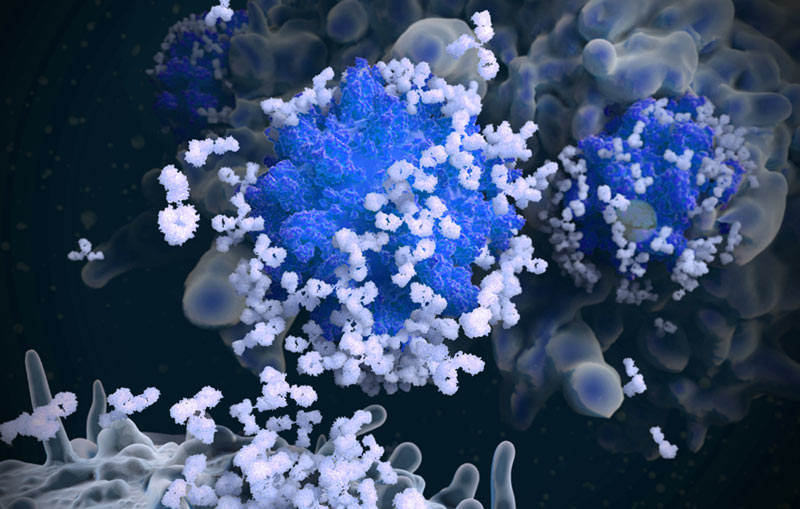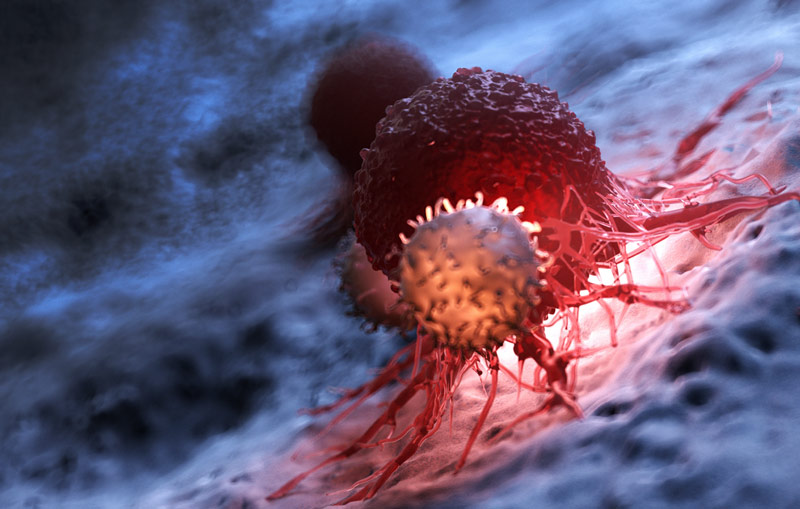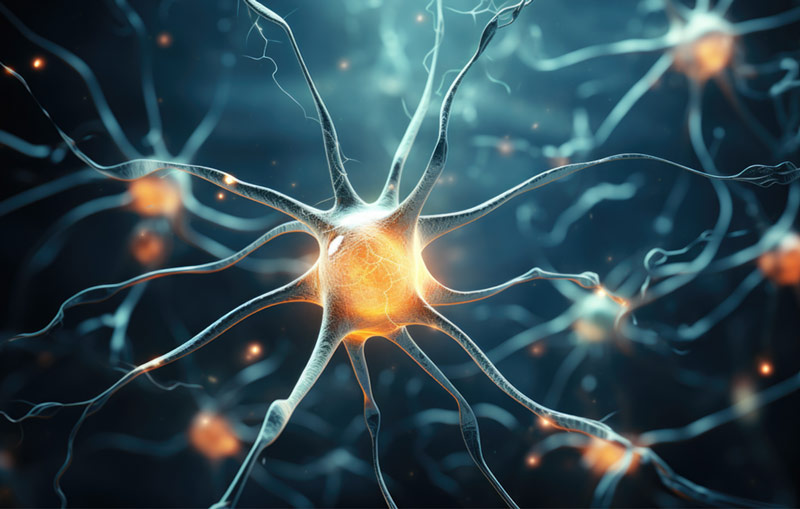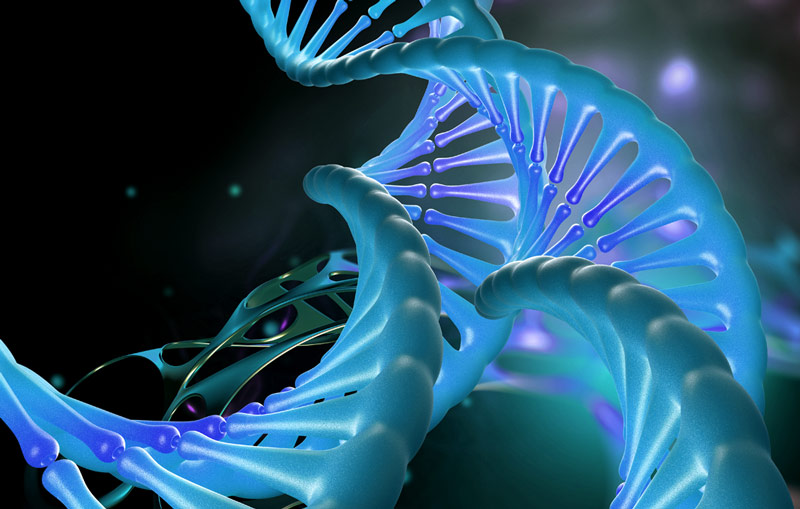- Follow Us
CDI Labs Autoantibody Seromics
Autoantibody Seromics Overview
To better understand diseases and their potential treatments, it is important to study immune responses to individual antigens: the precise molecular-level targets recognized by the adaptive immune system.
REQUEST INFOOur Immune System is Adaptive and Ever-changing
It is informed by infections, foods, injuries, microbes, and our environment – made up of hundreds of billions of independent immune cells competing to seek, destroy, and remember antigen targets across our lifetime.
A lifetime of immune experiences drives the body to make countless antibody clones
This creates an antigen-specific antibody fingerprint that's more unique than the genome

Antibodies Come in a Variety of Forms Called Isotypes
Depending on the isotype, antibodies can promote cell killing, protective immune tolerance, or help educate T cells.

Autoimmune Diseases

 Featured publication (HuProt):
Featured publication (HuProt):
Autoantibodies against type I IFNs in humans with alternative NF-κB pathway deficiency
Tom Le Voyer, Anne Puel, et. al.
Autoantibodies play a crucial role in the development and progression of autoimmune diseases which occur when the immune system mistakenly targets and attacks the body's own tissues, mistaking them for foreign invaders.
Autoantibodies can directly contribute to tissue damage in conditions like rheumatoid arthritis and systemic lupus erythematosus, where autoantibodies target joint tissues or components of the skin, kidneys, and other organs, leading to inflammation and organ dysfunction. They can even directly influence the function of immune cytokines, altering the progression and symptoms of autoimmune conditions.
Understanding the specific autoantibodies involved in an autoimmune disease can guide treatment strategies. For example, therapies may aim to suppress the overall immune response, reduce inflammation, or target specific components of the immune system responsible for producing autoantibodies.
Research in the field of autoimmunity is ongoing, and scientists are continually identifying new autoantibodies associated with different autoimmune diseases. This deeper understanding of the role of autoantibodies is contributing to the development of more targeted and personalized approaches to the diagnosis and treatment of autoimmune conditions.
> Contact us about your autoimmune disease study or questions.
Immuno-oncology

 Featured publication (HuProt):
Featured publication (HuProt):
Baseline Serum Autoantibody Signatures Predict Recurrence and Toxicity in Melanoma Patients Receiving Adjuvant Immune Checkpoint Blockade
Paul Johannet, Iman Osman, et. al.
Cancer immunotherapy aims to harness the power of the immune system to target and destroy cancer cells. While autoantibodies are traditionally associated with autoimmune diseases, their role in cancer is a complex and evolving area of research.
Autoantibodies, particularly those targeting tumor-associated antigens (TAAs), have the potential to be exploited for therapeutic purposes. Strategies involving the enhancement of these autoantibodies or the development of vaccines to stimulate their production are areas of ongoing research.
The presence of specific autoantibodies in the blood of cancer patients has been investigated for early cancer detection. Some studies suggest that autoantibodies against certain TAAs may appear in the bloodstream before the onset of clinical symptoms. Early detection is crucial for improving treatment outcomes, and autoantibodies could potentially serve as biomarkers for cancer screening.
Autoantibodies have gained attention as potential biomarkers in the field of immuno-oncology. More specifically, research has demonstrated that autoantibody signatures have the potential to predict both disease recurrence and immune-related adverse events in melanoma patients treated with checkpoint inhibitor adjuvant immunotherapy.
> Contact us about your immuno-oncology study or questions.
Neurological Diseases

 Featured publication (HuProt):
Featured publication (HuProt):
Clonally expanded B cells in multiple sclerosis bind EBV EBNA1 and GlialCAM
Tobias V. Lanz, William H. Robinson, et. al.
Autoantibodies can play a significant role in neurological diseases, contributing to various autoimmune disorders that affect the central nervous system. In these conditions, the immune system mistakenly targets components of the nervous system, leading to inflammation, tissue damage, and neurological symptoms.
The detection of specific autoantibodies in the blood or cerebrospinal fluid can aid in the diagnosis of certain neurological diseases and is often performed in conjunction with clinical and imaging studies to confirm diagnoses.
Conditions for which autoantibodies have been indicated as a causal factor include, Autoimmune Encephalitis, Paraneoplastic Neurological Syndromes, Multiple Sclerosis, Guillain-Barré Syndrome and Chronic Inflammatory Demyelinating Polyneuropathy.
> Contact us about your neurological disease study or questions.
Infectious Diseases

 Featured publication (HuProt):
Featured publication (HuProt):
Immunopathological signatures in multisystem inflammatory syndrome in children and pediatric COVID-19
Keith Sacco, Luigi D. Notarangelo, et. al.
Autoantibodies can sometimes be associated with infectious diseases, and their presence or induction is a complex aspect of the host immune response. Infections have the capability of inducing a new autoimmune response or worsening an existing condition.
Molecular mimicry is a phenomenon where the antigens of infectious agents resemble host tissues. This can lead to the production of antibodies that cross-react with both the infectious agent and self-antigens. For example, research indicates that Epstein-Barr virus can lead to the development of MS via high-affinity molecular mimicry between the EBV transcription factor EBV nuclear antigen 1 (EBNA1) and the central nervous system protein glial cell adhesion molecule (GlialCAM).
Certain infections can trigger autoimmune responses which lead to the production of autoantibodies even after the infection has been cleared. One such example is post-streptococcal autoimmune reactions, where infections like streptococcal pharyngitis can lead to the production of autoantibodies that target host tissues, causing conditions such as rheumatic fever.
Some infections can induce systemic autoimmune responses, where the immune system produces autoantibodies that target a variety of self-antigens. This phenomenon is an area of research in conditions such as systemic lupus erythematosus, where viral infections may contribute to the activation of autoreactive immune cells, leading to the production of autoantibodies and inflammation.
> Contact us about your infectious disease study or questions.
Genetic Diseases

 Featured publication (HuProt):
Featured publication (HuProt):
Autoimmunity in Down’s syndrome via cytokines, CD4 T cells and CD11c+ B cells
Louise Malle, Dusan Bogunovic, et. al.
While many genetic conditions are not explicitly thought of as immunologic disorders, it is impossible to separate the immune system from the rest of the human body. Due to the inherently interconnected nature of living systems, even a simple perturbation in the function of most any cell type or metabolic process is likely to have complex cascading effects that ripple and alter the behavior of other bodily systems. The adaptive immune system in particular, representing approximating half of all nucleated cells in the human body, has behavior that is particularly sensitive to genetic dysregulation. These effects can create over-active immunity with increased rates of autoimmune and inflammatory disease, or under-active immunity that makes the affected patients more susceptible to infection.
The genetic conditions causing this can be simple, affecting a single gene. Alternatively, they can be very complex such as the case of Down Syndrome, where the presence of an extra chromosome 21 creates altered expression for hundreds of genes simultaneously. In most cases the health of affected patients remains closely linked to properly controlled immune behavior: successful disease clearance, tolerance to foods and allergens, avoidance of autoimmunity, and successful cancer immunosurveillance.
Genetic impacts can be felt in immune cells directly, with mutations in immune-expressed genes resulting in altered metabolism and responses to immune signaling pathways. Alternatively, genetic defects can primarily alter the behavior of other somatic cells, altered behavior that can disrupt how those tissues are able to successfully recruit inflammation or prevent autoimmunity.
> Contact us about your genetic disease study or questions.

